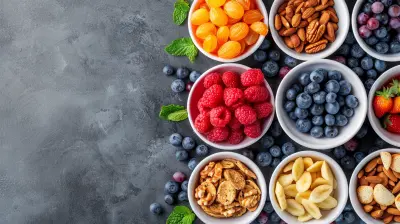Gut-Brain Communication: How What You Eat Affects Your Mind
16 July 2025
Let’s get real for a second—how often do you feel foggy, anxious, or just emotionally drained and then grab a snack to feel better? Turns out, your snack choice isn't just about cravings…it might literally be affecting your mind.
Welcome to the endlessly fascinating world of gut-brain communication. It's not just about digestion anymore. Your gut and brain are constantly chatting like best friends, and everything you eat fuels that conversation. Intrigued? You should be. This gut-brain connection is a total game-changer for your mental health—and today, we’re diving deep into this relationship in a way that’s easy to understand, and honestly, pretty eye-opening.
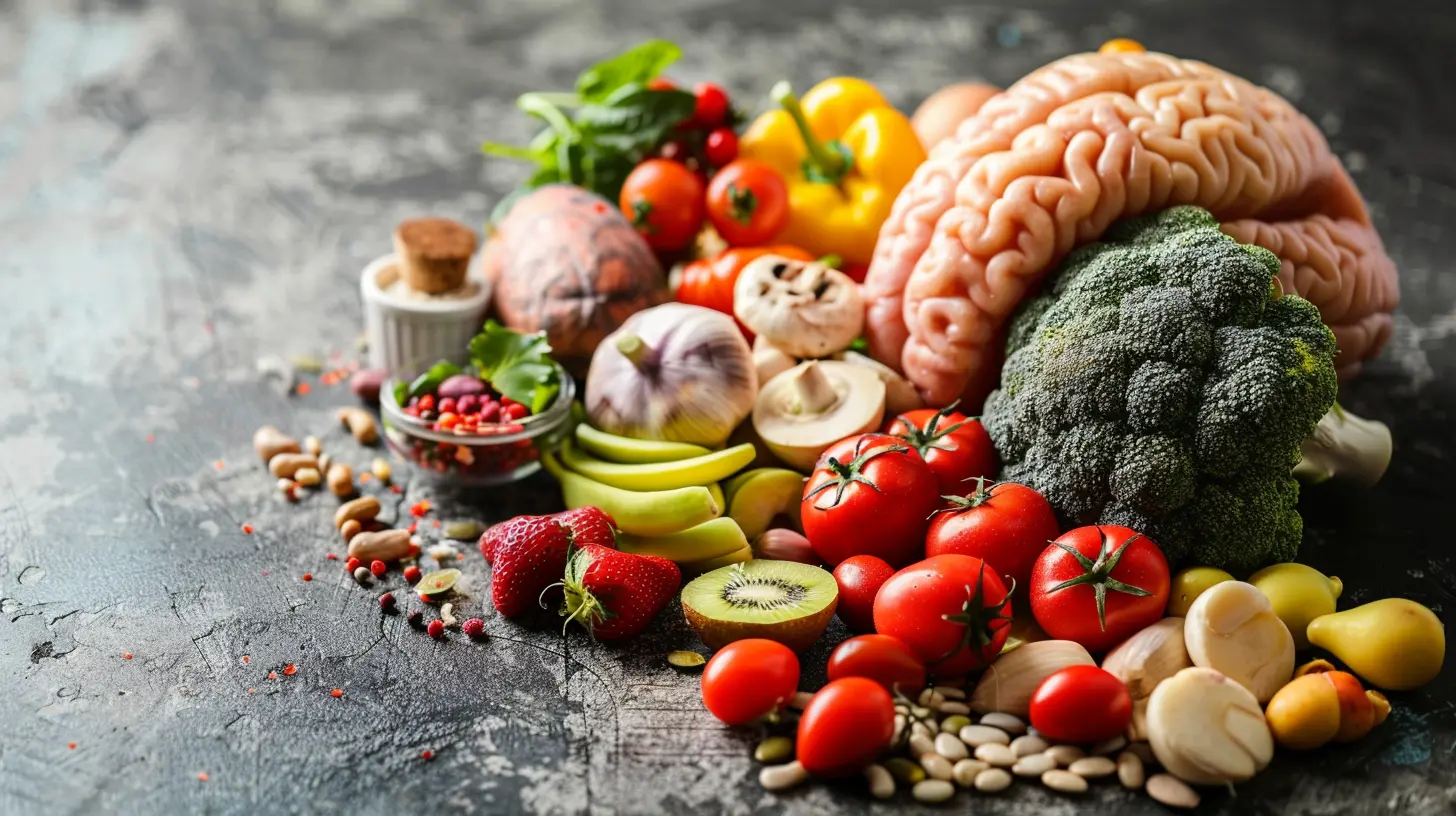
What Is the Gut-Brain Axis Anyway?
Okay, let’s unpack this term that sounds like science fiction.Imagine your gut and brain as two cities connected by a high-speed train called the vagus nerve. This communication superhighway transmits constant updates between your digestive system and your brain. The gut-brain axis isn't just metaphorical—it's a physical link that allows your body to sync mental and digestive health.
But here’s the cool twist—your gut isn’t just a humble organ that processes food. It’s home to trillions (yes, trillions!) of microorganisms called your gut microbiome. These tiny organisms produce neurotransmitters like serotonin and dopamine, which heavily influence your mood, sleep, and even memory.
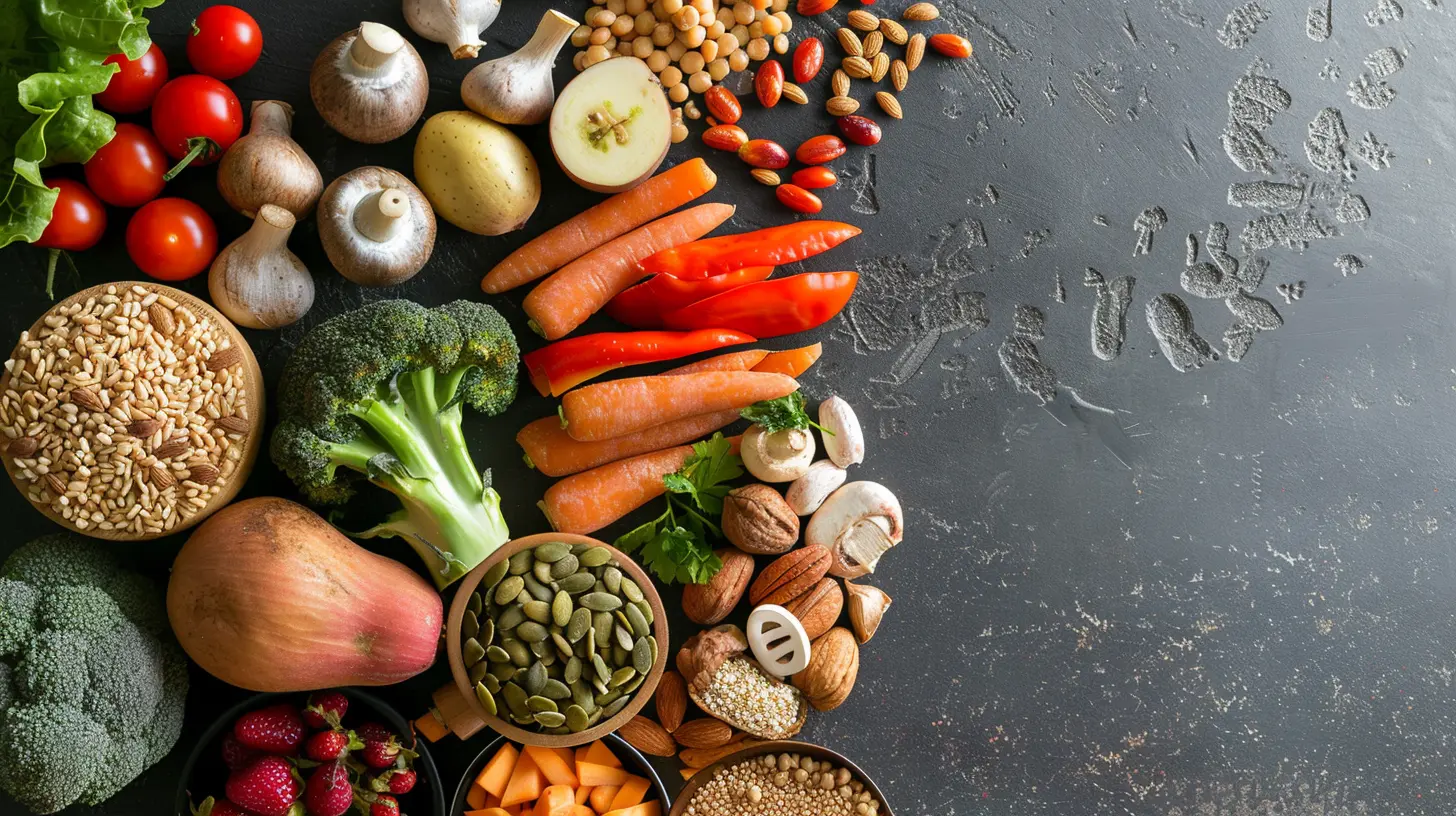
Your Second Brain: Meet the Enteric Nervous System
Ever had a “gut feeling”? That’s not just a cute expression.Your gut has its own nervous system—called the enteric nervous system (ENS). It operates independently and controls digestion. But its effects go far beyond your stomach. The ENS is often referred to as your “second brain,” and for good reason. It’s loaded with neurons and communicates directly with your head brain all the time.
If your gut is happy, your brain knows it. If your gut is off? Your brain gets the memo loud and clear—enter the blues, fog, or even anxiety.
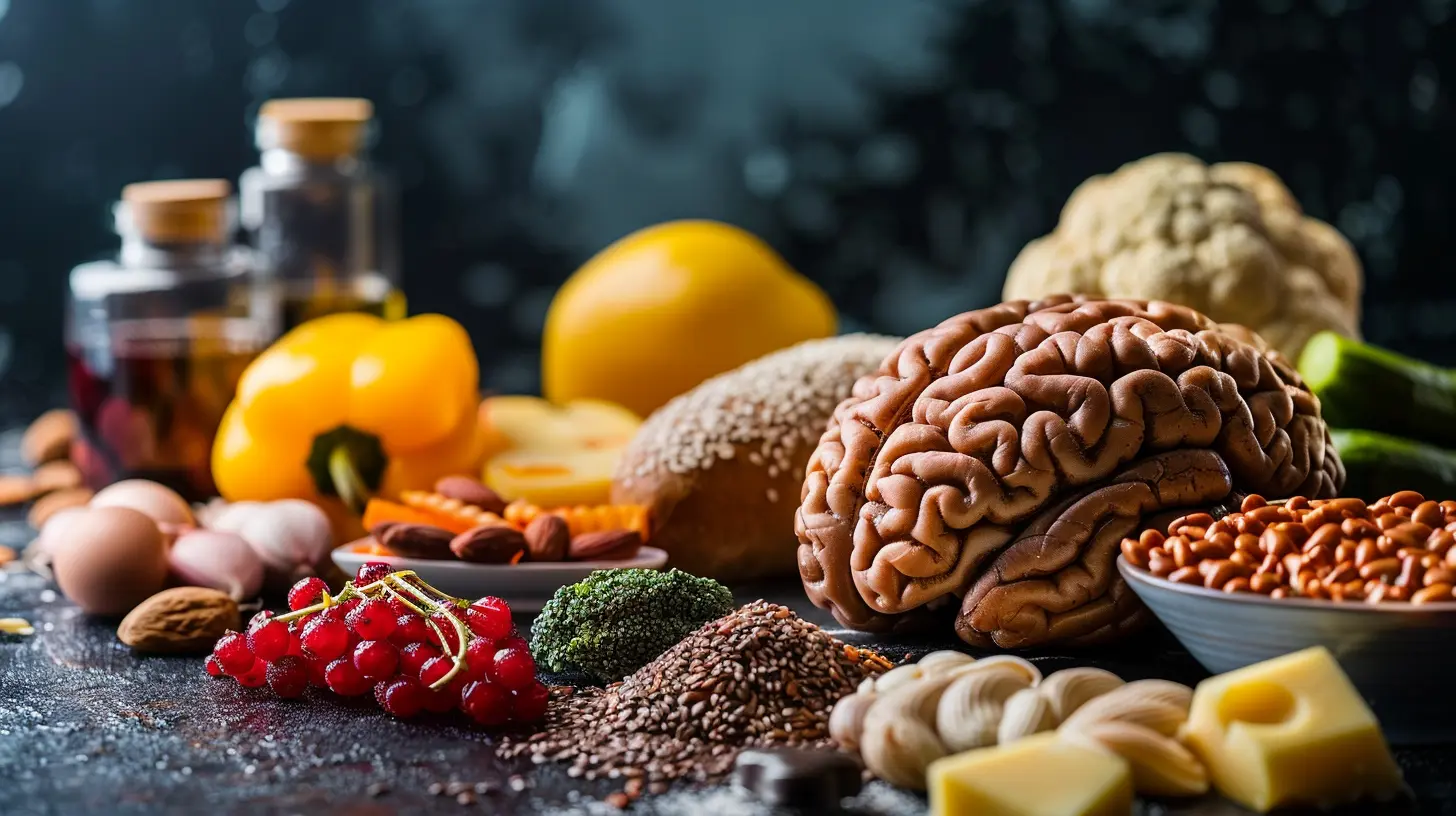
The Role of Food in Gut-Brain Communication
Here’s where things get serious (and delicious). The food you put into your body fuels your gut microbes. Feed them well, and they produce powerful neurotransmitters and anti-inflammatory agents. Feed them junk? They create chaos—which, as you guessed, affects your brain.1. Sugar: The Silent Saboteur
We all love a sweet treat now and then, but our gut bugs? Not so much.Refined sugar has been shown to disrupt the balance of good and bad bacteria in the gut. This imbalance, known as dysbiosis, can lead to inflammation—not only in your gut but also in your brain. Increased inflammation has a strong link to depression and anxiety. That’s right—your sugar habit might be fueling your mental funk.
2. Fiber: The Gut’s Favorite Snack
Think of fiber as fuel for your good gut bacteria. It’s like flipping on the lights in a dark room—they thrive when fiber is around.High-fiber foods like fruits, veggies, legumes, and whole grains support the production of short-chain fatty acids—compounds that reduce inflammation and support brain function. They're basically magical little mood-boosters that come from natural, whole foods.
3. Fermented Foods: Probiotic Powerhouses
Ever tried kimchi, kefir, or sauerkraut? These fermented goodies are probiotic-rich, meaning they bring in the "good guys" for your gut.Probiotics have been directly linked to better emotional regulation and lower stress. They’re like peacekeepers keeping your gut microbiota in balance, which keeps your brain from going haywire.
4. Omega-3 Fatty Acids: Brain Food Extraordinaire
Omega-3s are like the oil that keeps the gut-brain engine running smoothly. Found in fatty fish like salmon, chia seeds, and walnuts, they support the integrity of gut lining, reduce inflammation, and boost neurotransmitter production.If you’ve ever wondered how to improve focus or reduce anxiety naturally, omega-3s could be your new best friend.
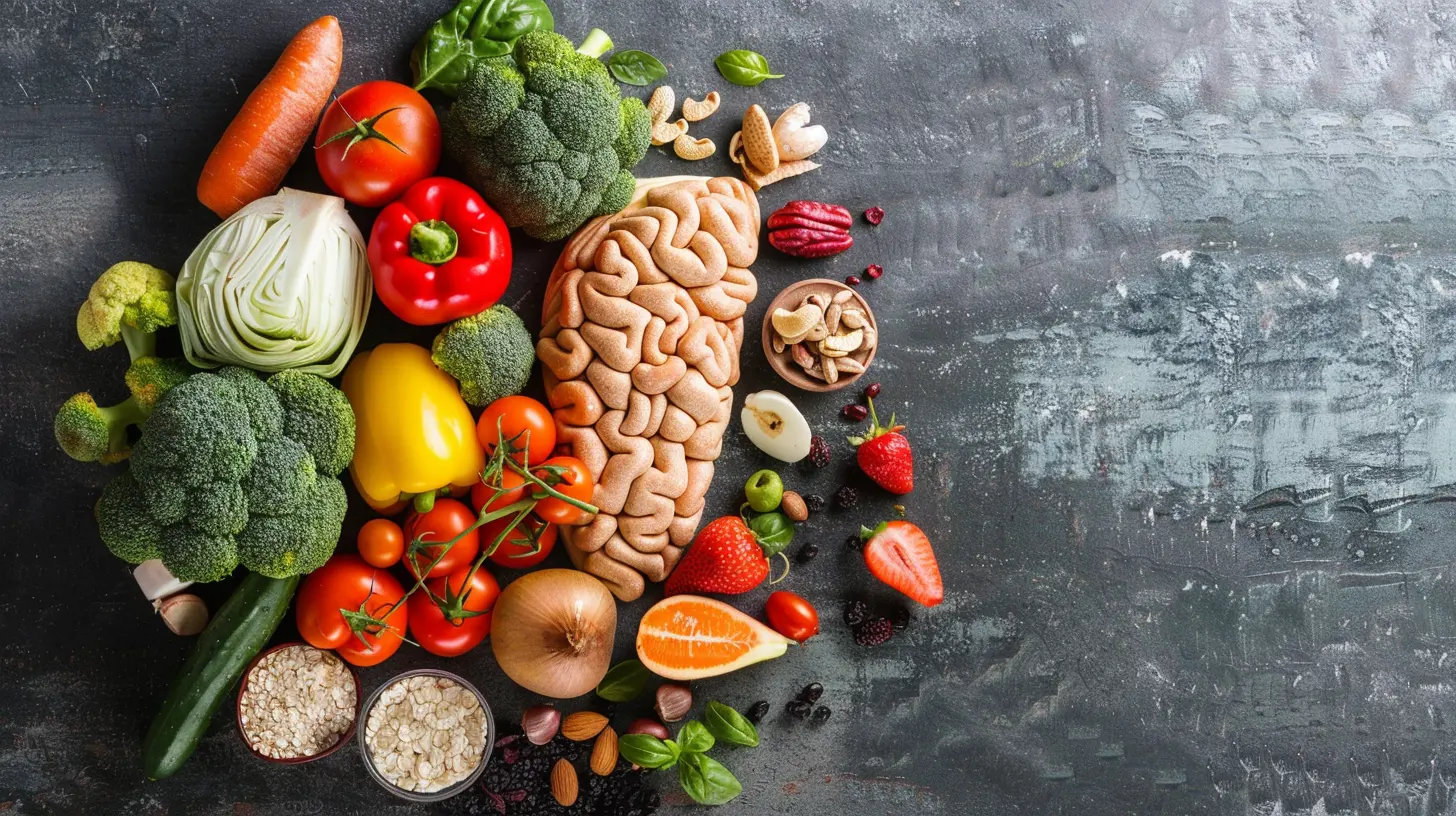
Can You Eat Your Way to a Better Mood?
Honestly, yes! But let’s not oversimplify it—your mood is influenced by many factors: genetics, environment, sleep, stress levels, and yes, diet.Still, the right foods can make a dramatic difference in how you feel day-to-day. Have you ever tried eating clean for a week and suddenly felt more energetic, clear-headed, even happier? That’s not a coincidence—that’s the gut-brain connection in action.
The Science Behind It
Need some evidence to back this up?Numerous studies have found direct links between gut health and mental health. One standout trial published in the journal Psychiatry Research found that people who ate more fermented foods and fewer refined carbs had significantly lower rates of anxiety. Another study showed that people with depression had different gut microbiomes than those without—suggesting the root of their mood issues might be in their belly.
Even more fascinating? Mice treated with probiotics showed reduced signs of depression. And when scientists transferred “happy” gut bacteria into a mouse with anxiety, the mouse started behaving more boldly. Wild, right?
Simple Steps to Improve the Gut-Brain Connection
You don’t need a PhD or a pantry full of supplements to start healing your gut. Here are some super simple ways to support gut-brain harmony:1. Eat the Rainbow
Colorful produce = diverse nutrients = happy gut bugs. It’s that simple. Try to include at least 3–5 different colors on your plate at every meal.2. Cut the Crap (Mostly)
We’re not about deprivation here, but cutting back on processed foods, fast food, and excess sugar can do wonders for your gut microbiome—and by extension, your brain.3. Get Fermented
Add a serving of fermented foods once a day. Yogurt, kefir, miso, or even a couple bites of sauerkraut can make a noticeable difference.4. Stay Hydrated
You’ve heard it a hundred times, but water is essential for everything—including digestion and brain function. Dehydration can make you feel mentally sluggish.5. Move Your Body
Exercise helps keep your gut bacteria balanced and increases the production of brain-boosting chemicals like endorphins and serotonin. Even a daily walk can help.6. Sleep Like It’s Your Job
Your gut and brain both work hard during sleep. Aim for 7–9 hours a night, and your mental clarity will thank you.The Emotional Side of Eating
Let’s not ignore the emotional side of all this. Food is deeply personal. It’s tied to culture, childhood, joy, and sometimes pain. So when you shift to a gut-friendly diet, do it with kindness. No guilt, no shame—just a conscious decision to treat your mind and body with the love they deserve.Changing how you eat isn't about perfection. It's about connection—to your body, your mind, and ultimately, your well-being.
Real Talk: My Own Gut-Brain Journey
I'll get personal for a second. A couple of years ago, I was always tired, stressed, and in a fog. I chalked it up to “adulting,” until I began learning about gut health.I made small, consistent changes—added a probiotic, swapped sugary snacks for fruit, and started having kombucha instead of soda. Within weeks, my energy improved. I felt lighter, clearer, and (bonus) my skin looked better too.
No miracle cures, just better food and better habits. The difference? Night. And. Day.
Final Thoughts: Your Gut Feels Everything
It’s easy to ignore your gut until it acts up—but listening to it daily can transform your mental health.The gut-brain connection isn’t just a wellness trend; it’s biological truth backed by science. And guess what? You have the power to influence it. Every time you sit down to eat, you’re not just feeding your body—you’re nourishing your mind.
So the next time you’re craving clarity, calm, or happiness, head to your kitchen before your medicine cabinet. Your gut might have the answer whispering through every bite.
all images in this post were generated using AI tools
Category:
NutritionAuthor:

Eileen Wood
Discussion
rate this article
1 comments
Jillian Stone
Delightful read! Food truly nourishes both gut and mind!
August 2, 2025 at 3:29 AM

Eileen Wood
Thank you! I'm glad you enjoyed it and appreciate your thoughts on the connection between food and our well-being!

